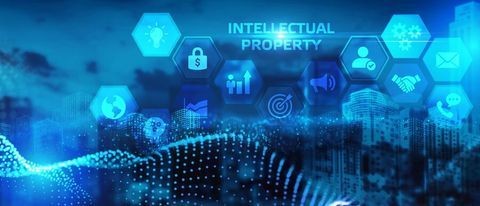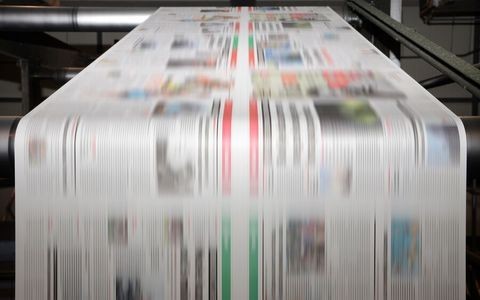Marc V. Richards
Overview
Marc focuses his patent practice on a broad range of technologies, including material science, hydrocarbon and chemical processing, renewable energy, specialty chemicals, food science, pharmaceutical therapeutics, medical devices, 3D printing, and computer software innovations applying data analytics, blockchain, AI, and cloud computing. He also counsels clients on patent infringement and invalidity investigations, licensing, and trade secret matters. Whether they are Fortune 500 companies, universities, or high-tech start-ups, clients often look to Marc for advice in protecting nontraditional innovations and emerging technologies. Having traveled the globe for a half-dozen years as an engineer and then cutting his teeth on becoming a patent attorney prosecuting global portfolios extending over 40 countries, Marc brings a wealth of international IP experience, to his clients’ advantage.
Career & Education
- UOP
Senior Instrument Engineer, 1988–1990
Field Technical Service Engineer, 1982–1988 - U.S. District Court, Northern District of Illinois
Judicial Student Extern, Judge John A. Nordberg, 1992
- UOP
- Washington University in St. Louis, B.S., chemical engineering, 1992
- University of Chicago, M.B.A., with honors, 1993
- Loyola University of Chicago Law School, J.D., cum laude, 1993
- Illinois
- U.S. Patent and Trademark Office (USPTO)
- U.S. District Court for the Northern District of Illinois
- U.S. Court of Appeals for the Federal Circuit
Professional Activities and Memberships
- PTAB Bar Association
Director, 2016–2018, 2019–2020 - International Association for the Protection of Intellectual Property (AIPPI)
Immediate Past Chair, US Group, 2020–present
Chair, US Group, 2018–2020
Vice Chair, US Group, 2016–2018
Treasurer, US Group, 2015–2016
Int’l Chair of Q on Security Interests—Milan, 2016
Int’l Chair of Q217 Working Committee—Hyderabad ExCo, 2011
US Group Steering Committee, 2013–2015
US Group Chair Q213, Q217, and Q241 - American Intellectual Property Law Association (AIPLA)
- Intellectual Property Law Association of Chicago (IPLAC)
Immediate Past President, May 2021–present
President, 2020–2021
President Elect, 2019–2020
Treasurer, 2011–2013
Board of Managers, 2002–2004 - Richard Linn American Inn of Court, Founding Master, 2007
- Intellectual Property Owners Association
- Licensed Professional Engineer, Illinois, 1989
- PTAB Bar Association
Marc's Insights
Client Alert | 4 min read | 07.20.23
Patent Eligibility Restoration Act of 2023—What In-House Counsel Need to Know
On June 22, 2023, U.S. Senators Thom Tillis (R-NC) and Chris Coons (D-DE) introduced the Patent Eligibility Restoration Act of 2023 (“the Bill”), aiming to restore patent eligibility to important inventions across many fields. Essentially, the Bill is trying to eliminate judicial exceptions to patent eligibility, and provide clear guidance on determining patent eligibility, especially in areas such as medical diagnostics, biotechnology, personalized medicine, artificial intelligence, 5G, and blockchain. The U.S. Supreme Court has established several judicial exceptions to subject matter eligible for patenting. Although these exceptions are not enumerated in the statute, the Supreme Court has interpreted 35 U.S.C. § 101 to exclude subject matter from being patented if it falls within any of three areas: natural phenomena, laws of nature and abstract ideas. Alice Corp. v. CLS Bank International, 573 U.S. 208 (2014). These judicial exceptions frustrate many IP owners around the world, because many inventions that are eligible for patents in other countries cannot be patented in the U.S. or are ruled invalid in U.S. courts. Moreover, supporters of this bill argue that leading-edge technologies that give U.S. industry competitive advantages over foreign companies have been difficult to patent in the U.S. under the Court’s rulings. This legislation reportedly has a good chance to pass in this Congressional session, and companies need to be prepared for the dramatic changes if it becomes law.
Publication | 02.07.23
Press Coverage | 09.13.22
Press Coverage | 09.13.22
The Metaverse Takes Virtual Meetings – And Everything Else – A Step Beyond Zoom
Representative Matters
Patents
- US 8,889,747 Fischer Tropsch Reactor with Integrated Organic Rankine Cycle
- US 8,645,420 Methodology Framework and Delivery Vehicle
- US 8,558,020 Aqueous Hydrogen Peroxide Solution, Process for its Preparation and Use Therefore
- US 8,266,066 Maintenance, Repair and Overhaul Management
- US 8,065,210 Total Return to Shareholders Analytics
- US 7,854,911 Method of Removing Sulfur Dioxide from a Flue Gas Stream
- US 7,739,590 Automatic Generation of Personal Homepages for a Sales Force
- US 7,126,558 Industrial Augmented Reality
- US 7,020,621 Method for Determining Total Cost of Ownership
- US 6,895,383 Overall Risk in a System
- US 6,869,686 Irradiated Biaxially-Oriented Film
- US 6,738,736 Method and Estimator for Providing Capacity Modelling and Planning
- US 6,740,409 Polymer Films
- US 6,270,555 Process for Treating Precious Metal Ores
- US 6,244,707 UV Blocking Lenses and Materials Containing Benzotriazoles and Benzophenones
- US 6,121,321 Substituted Methoxy Benzylidene Indenyl Acetic and Propionic Acids for Treatment of Patients With Precancerous Lesions
- US 5,858,694 Method for Identifying Compounds for Inhibition of Cancerous Lesions
- US 5,834,002 Chewing Gum Containing Colloidal Bismuth Subcitrate
- US 5,618,504 Method For Recovery of Alkali Values from Trona Using Sequential Crystallization
- WO 01/05578 Thermoformable Ophthalmic Lenses
- WO 00/59365 Biomedical Devices with Polyimide Coating
- WO 99/31506 Parallel Solution Phase Synthesis of Lactams
Litigation
- Hossack v. Roundhill, Patent Interference 105,877 JC (Patent Board of Appeals & Interferences). Interference proceeding involving U.S. Patent No. 5,928,151 directed to ultrasound medical diagnostics technology. Case settled.
- Elazar v. Petrushin, Patent Interference 105,737 JL (Patent Board of Appeals & Interferences). Interference proceeding involving U.S. Patent No. 6,542,602 directed to vocal emotion recognition technology. Case settled.
- Maziuk v. Ritzenthaler, Patent Interference 105,693 McK (Patent Board of Appeals & Interferences). Interference proceeding involving U.S. Patent No. 7,481,987 directed to flue gas desulfurization technology. Case settled.
- First Health Group v. Allcare Health Mgmt System Inc., Case No. IL N-1:01cv1790 (Northern District of Illinois). Declaratory judgment action filed by medical insurance provider against patentee seeking declaration of patent invalidity, non-infringement, and unenforceability. Case settled before trial.
- Allcare Health Mgmt System, Inc. v. Advance Paradigm, Inc., et al., Case No. 400-CV-1683-E (Northern District of Texas-Fort Worth Division). Patent infringement action asserted against defendants' pharmaceutical benefit computer systems. Case settled before trial.
- S.C. Johnson Commercial Markets, Inc. v. The B.F. Goodrich Company, Case No.98 C 0052 S (Western District of Wisconsin). Infringement and validity of three patents relating to bulk polymerization process for making acrylic copolymers. Two patent counts were withdrawn before trial, and the remaining count was settled at beginning of trial.
Marc's Insights
Client Alert | 4 min read | 07.20.23
Patent Eligibility Restoration Act of 2023—What In-House Counsel Need to Know
On June 22, 2023, U.S. Senators Thom Tillis (R-NC) and Chris Coons (D-DE) introduced the Patent Eligibility Restoration Act of 2023 (“the Bill”), aiming to restore patent eligibility to important inventions across many fields. Essentially, the Bill is trying to eliminate judicial exceptions to patent eligibility, and provide clear guidance on determining patent eligibility, especially in areas such as medical diagnostics, biotechnology, personalized medicine, artificial intelligence, 5G, and blockchain. The U.S. Supreme Court has established several judicial exceptions to subject matter eligible for patenting. Although these exceptions are not enumerated in the statute, the Supreme Court has interpreted 35 U.S.C. § 101 to exclude subject matter from being patented if it falls within any of three areas: natural phenomena, laws of nature and abstract ideas. Alice Corp. v. CLS Bank International, 573 U.S. 208 (2014). These judicial exceptions frustrate many IP owners around the world, because many inventions that are eligible for patents in other countries cannot be patented in the U.S. or are ruled invalid in U.S. courts. Moreover, supporters of this bill argue that leading-edge technologies that give U.S. industry competitive advantages over foreign companies have been difficult to patent in the U.S. under the Court’s rulings. This legislation reportedly has a good chance to pass in this Congressional session, and companies need to be prepared for the dramatic changes if it becomes law.
Publication | 02.07.23
Press Coverage | 09.13.22
Press Coverage | 09.13.22
The Metaverse Takes Virtual Meetings – And Everything Else – A Step Beyond Zoom
Recognition
- Burton Awards for Legal Achievement: Law Firm Legal Writing Award, 2014
- Leading Lawyers Network: Leading Intellectual Property Lawyer, 2006–2007, 2009–2021
- Illinois Super Lawyers: Intellectual Property, 2013–2016, 2018–2023
- Loyola University Chicago School of Law, Antitrust, Property, Civil Procedure: American Jurisprudence Award
- Loyola University Chicago Law Journal: Editor
- Loyola University Chicago Consumer Reporter: Contributing Editor
Marc's Insights
Client Alert | 4 min read | 07.20.23
Patent Eligibility Restoration Act of 2023—What In-House Counsel Need to Know
On June 22, 2023, U.S. Senators Thom Tillis (R-NC) and Chris Coons (D-DE) introduced the Patent Eligibility Restoration Act of 2023 (“the Bill”), aiming to restore patent eligibility to important inventions across many fields. Essentially, the Bill is trying to eliminate judicial exceptions to patent eligibility, and provide clear guidance on determining patent eligibility, especially in areas such as medical diagnostics, biotechnology, personalized medicine, artificial intelligence, 5G, and blockchain. The U.S. Supreme Court has established several judicial exceptions to subject matter eligible for patenting. Although these exceptions are not enumerated in the statute, the Supreme Court has interpreted 35 U.S.C. § 101 to exclude subject matter from being patented if it falls within any of three areas: natural phenomena, laws of nature and abstract ideas. Alice Corp. v. CLS Bank International, 573 U.S. 208 (2014). These judicial exceptions frustrate many IP owners around the world, because many inventions that are eligible for patents in other countries cannot be patented in the U.S. or are ruled invalid in U.S. courts. Moreover, supporters of this bill argue that leading-edge technologies that give U.S. industry competitive advantages over foreign companies have been difficult to patent in the U.S. under the Court’s rulings. This legislation reportedly has a good chance to pass in this Congressional session, and companies need to be prepared for the dramatic changes if it becomes law.
Publication | 02.07.23
Press Coverage | 09.13.22
Press Coverage | 09.13.22
The Metaverse Takes Virtual Meetings – And Everything Else – A Step Beyond Zoom
Marc's Insights
Client Alert | 4 min read | 07.20.23
Patent Eligibility Restoration Act of 2023—What In-House Counsel Need to Know
On June 22, 2023, U.S. Senators Thom Tillis (R-NC) and Chris Coons (D-DE) introduced the Patent Eligibility Restoration Act of 2023 (“the Bill”), aiming to restore patent eligibility to important inventions across many fields. Essentially, the Bill is trying to eliminate judicial exceptions to patent eligibility, and provide clear guidance on determining patent eligibility, especially in areas such as medical diagnostics, biotechnology, personalized medicine, artificial intelligence, 5G, and blockchain. The U.S. Supreme Court has established several judicial exceptions to subject matter eligible for patenting. Although these exceptions are not enumerated in the statute, the Supreme Court has interpreted 35 U.S.C. § 101 to exclude subject matter from being patented if it falls within any of three areas: natural phenomena, laws of nature and abstract ideas. Alice Corp. v. CLS Bank International, 573 U.S. 208 (2014). These judicial exceptions frustrate many IP owners around the world, because many inventions that are eligible for patents in other countries cannot be patented in the U.S. or are ruled invalid in U.S. courts. Moreover, supporters of this bill argue that leading-edge technologies that give U.S. industry competitive advantages over foreign companies have been difficult to patent in the U.S. under the Court’s rulings. This legislation reportedly has a good chance to pass in this Congressional session, and companies need to be prepared for the dramatic changes if it becomes law.
Publication | 02.07.23
Press Coverage | 09.13.22
Press Coverage | 09.13.22
The Metaverse Takes Virtual Meetings – And Everything Else – A Step Beyond Zoom





